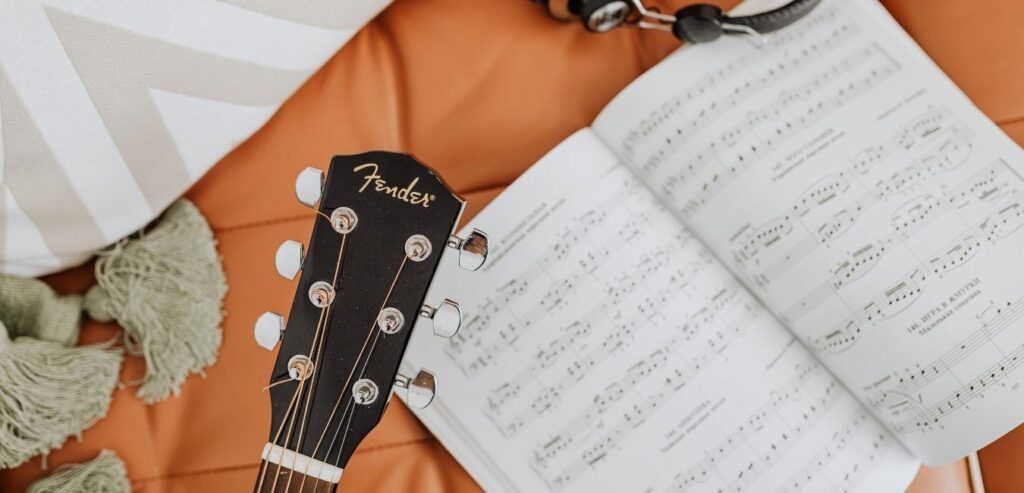8 Actionable Tips To Memorize A Poem Easier
Memorizing a poem is not an exact science. There is no right or wrong way to do it.
However, if you follow these easy tips, you will find memorizing a poem a piece of cake.
And, after you memorize your poem, you will be able to recite it from memory… with no notes or paper and pencil in sight.
Here are the easy tips to help you memorize your poem fast:
Table of Contents
1. Make Up an Outline or a Storyline in Your Head
This is another way to learn the rhythm and pattern of the poem. Outline the story the poem is telling you.
What happened before the poem begins? What happens during the “action” part of the poem? What happens after the action? What are the major characters in the poem? How do they change over the course of the poem? What does the poem want you to learn? You get the idea.
The point is to create a storyline in your own mind that will help you to quickly understand the poem when you are reading it.
In addition, if you write down all the important words in order, you should be able to easily see how the words fit together and build a logical storyline in your own head.
READ MORE:
2. Identify Connections between Sections
Many times, there will be a connection between different parts of the poem. Perhaps the first part is about X and the last part explains what happens when X occurs. Or perhaps the first part tells you what someone was thinking when Y happened and the second part explains what actually happened when Y occurred.
What is the connection? It could be almost anything – an emotion, a situation, a description, a number, or any other idea or fact that is similar in some way.
The point is that often, what connects one part of the poem to another is the idea that something unites all of humanity. Even if the connection is seemingly trivial (like the fact that all humans have two arms and two legs), it will help you to quickly understand the poem.
3. Visualize the Poem
This is an advanced technique but it can really pay off. You should be able to easily visualize the poem as you are reading it.
This will give you an even more profound understanding of the poem and you’ll be able to sing or hum the words along with the visual image.
If you do this, you will quickly learn the rhythm and pattern of the poem and you’ll end up with a very powerful memory of the poem.
You might want to try this technique even if you’ve already learned the other techniques. Often, after you do this, you will find that there is something new to learn. That’s because your visualization will cause dormant memories in your subconscious to awaken.
READ MORE:
- How to Use Visualization and Association for Better Memory?
- Beginner’s Guide: 4 Easy Steps To Build a Memory Palace to Memorize Virtually Anything
4.Make an Emotional Connection with the Poem
This is perhaps the most important of all the techniques for learning a poem.
After you have identified the storyline and you have clearly visualized the poem, you should make an emotional connection with it.
You should ask yourself questions like: “Is this a poem about my life? About someone, I know or have known? About something I can relate to on a very personal level?” The answers to these questions will tell you whether you are reading a poem you understand or a poem you do not understand.
READ MORE:
5. Repeat the Poem until You Know it by Heart
This is the only way you will be able to recite it accurately when you take the test. Memorizing a poem this way takes time, but it’s worth it. Trust me. Keep re-reading and memorizing the poem until you can recite it without thinking.
In addition, when you are reciting the poem, do it aloud.
This will force you to enunciate clearly and it will give your mind something to focus on other than the words on the page. It will also give you a chance to discover any mistakes you may have made while reading the poem.
READ MORE:
6. Listen to the Recitation of the Poem
It will also allow you to hear how well the meter (counting the number of syllables in each line) is maintained. This is because you should be able to easily hear the number of syllables in each line as the speaker reads it.
Listen for a pattern. For example, many poems read in four-line stanzas (groups of four lines) will always have a regular number of syllables in each line.
Listen for these patterns. They will give you a “feel” for the meter and they will help you to quickly find the rhythm of the poem.
READ MORE:
7. Write the Words in the Order They Appear in the Poem
Don’t worry about making any mistakes at this stage – just focus on remembering each word individually.
After you’ve written all of the words, go back and check your work. At this point, it’s helpful to highlight or underline important words. You’ll see what I mean when you try this exercise.
By doing it this way, you will learn not only how to memorize a poem but also how to learn how the poet intended the poem to be remembered.
8. Learn the Poem’s Rhyme Scheme
Many times, the rhymes will repeat in certain words or groups of words. This will give you an idea of how the poet structured the poem.
It will also give you a “feel” for the meter and the pattern the poet used to maintain it.
Look for patterns. Many poems follow a pattern of ABAB… where each “A” section is one line and each “B” section is two lines. Or perhaps the pattern is ABBA… where each “A” section is one line and each “B” section is two lines. You’ll get the idea.
The point is to see how the poet uses the meter to structure the poem. It’s similar to learning the beat of a song.
Once you learn that, you can sing or hum the words to the melody and you’ll have a much better understanding of the poem.
READ MORE:
Does Recite Mean Memorize?
No. Recite is when you read the poem out loud. Memorize is when you say the poem in your head. They are not the same thing.
Memorizing a poem by reading it aloud forces your mind to work. It forces you to visualize the poem as you are reading it.
Memorizing a poem this way will help you to internalize the poem and it will be embedded in your being.
Is Memorizing Poetry Good for The Brain?
Yes! Studies show that memorizing poetry and other forms of learning stimulates the parts of the brain that control memory and reasoning.
Memorizing poetry also triggers the part of the brain that controls emotions. Learning poetry by heart literally wires your mind for higher levels of intelligence.
READ MORE:
Is Poetry Good for Depression?
Yes. There is something about learning by heart that uplifts the soul.
It doesn’t matter if you are depressed or not when you are reading poetry. The act of learning the words and internalizing them will lift your spirits.
Conclusion
Learning to memorize poetry can take time and practice but the payoff can be tremendous. It will give you a deeper understanding of the poem and it will allow you to more easily understand and appreciate other poems.
Memorizing poetry will also enhance your life. It has been scientifically proven to stimulate the brain and trigger higher levels of intelligence. That means you will become a more well-rounded person with a greater ability to deal with all aspects of life.
Memorizing poetry is one of the best gifts you can give yourself. It is an act of self-love that will pay enormous dividends in every area of your life.
READ MORE:








